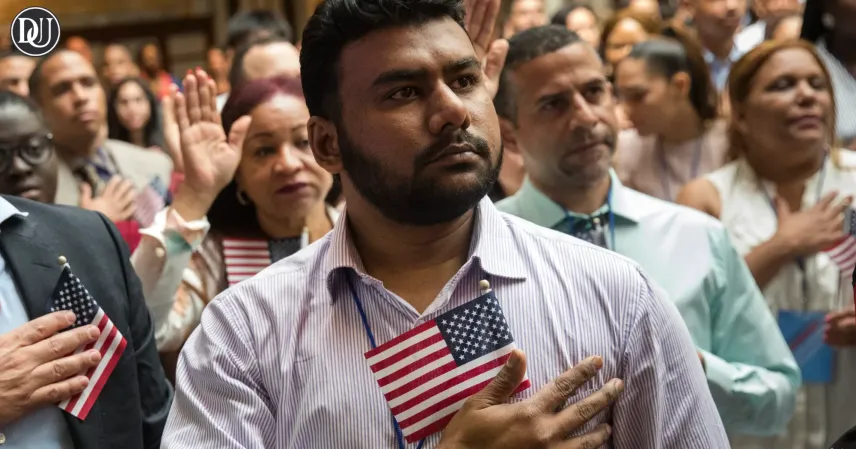In a significant policy shift, former President Donald Trump has unveiled plans that could dramatically affect the lives of millions of immigrants — particularly those who are a naturalized citizen. As part of his broader immigration crackdown, Trump and his allies are proposing new legal avenues to revoke citizenship if it's deemed to have been fraudulently obtained.
The policy has sparked immediate concern among immigration advocates, legal experts, and civil rights groups who worry it could lead to unjust targeting and due process violations.
DOJ Revives Denaturalization Focus
The U.S. Department of Justice (DOJ), under the influence of Trump-aligned policy advisors, is reportedly re-evaluating its approach to denaturalization — the legal process of revoking U.S. citizenship. Although rare in modern history, denaturalization is not new; however, this renewed interest represents a potentially wider application.
Officials say the focus will be on individuals who may have misrepresented themselves during the naturalization process. But critics warn that it creates a dangerous precedent, implying that the citizenship status of a naturalized citizen is more fragile than that of a U.S.-born citizen.
Legal and Ethical Concerns Mount
The proposal is already drawing backlash from immigration attorneys and human rights organizations. Many argue that the policy could result in racial profiling, bureaucratic overreach, and unnecessary legal battles for long-settled immigrants.
Being a naturalized citizen in the U.S. currently means full protection under the Constitution. However, if the DOJ is given expanded powers to challenge past naturalizations, it could send a chilling message to millions of immigrants who have built their lives here.
Civil liberties groups are gearing up for legal challenges, suggesting the policy may violate constitutional protections and due process rights.
Who Is at Risk?
According to preliminary reports, individuals flagged during background checks or found to have discrepancies in their original immigration filings may face scrutiny. In most cases, the government would need to prove that the person intentionally concealed material facts to obtain citizenship.
Still, immigration advocates caution that even minor clerical errors made years ago could put a naturalized citizen under investigation in a politicized environment.
With the 2024 presidential election behind him and support from conservative lawmakers, Trump’s stance is likely to remain a central part of his 2025 agenda, keeping naturalized citizen rights in national spotlight.










